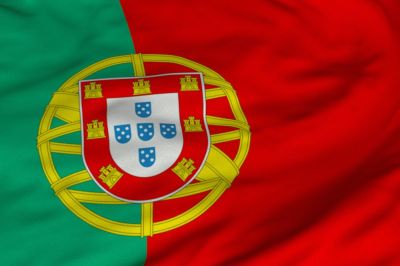Population (mln): 10,66
Official language/s: Portuguese
Internet TLD: .pt
Calling code: +351
Member of the EU from: 1st Jan 1986r
Unemployment rate Sep 2011 (%): 13.1
Unemployment rate under 25 years Sep 2011 (%): 31.4
Unemployment rate Sep 2012 (%): 16.2
Unemployment rate under 25 years Sep 2012 (%): 38.9
Population statistics 20-29 age group 2011 (%): 12,8
Country codes in education system: PT
Expected duration of education (years): 18,8
The XIX Government sees higher education has a major contributor to
the economic success and social well being of the country. Strengthening
the capacity of institutions of higher education is essential for
culture, development and affirmation of the country in various fields of
knowledge and it is seen as a way of increasing the competitiveness of
Portugal.
For that purpose the Government programme stresses the following targets:
- The existence of a legislative/regulatory clear, consistent, transparent, Higher Education;
- Monitoring and evaluate the implementation of laws adopted
in recent years and already implemented in the field, and its revision
and improvement in aspects which prove deficient;
- Revision
of legislation concerning the Bologna process, in order to simplify
procedures regarding the creation and modification of courses;
- The maintenance of the binary nature of Higher Education in Portugal (university and polytechnic);
- Study of possible measures leading to reorganization of
public institutions of higher education, with possible specialisation of
institutions in terms of course offerings and research;
- Investment of polytechnic education in technological specialisation courses and other short training;
- Strengthening the regulatory policies of institutions and
courses/programmes for quality, notably through independent assessment
and accreditation;
- Further incisive regulation through the Agency for
Assessment and Accreditation of Higher Education – A3ES - whose
independence is essential to its credibility;
- Maintain mobility programmes, encouraging the
internationalization of students and teachers especially in areas where
it is more incipient;
- Improve reporting mechanisms on the employability of higher education courses;
- Monitoring mechanisms for social support to students with financial difficulties or disabled students.
- The last amendment to Law No. 46/86, of 14th October concerning
the levels granted in higher education, established the adoption of the
model of organization in three cycles – Licenciatura (1st Cycle)
Mestrado (2nd Cycle) and Doutoramento (3rd Cycle) and the need to create
conditions that allow all citizens to access lifelong learning;
- The Agency for Assessment and Accreditation of Higher Education
“(henceforth referred as A3ES) is an independent organism, with no
connections to political power or to the evaluated entities. The rules
applied to the procedures developed by the A3ES are established in the
legal system of evaluation of the higher education approved by Law No.
38/2007, of 16th August;
- The adoption of instruments to create the European Higher
Education Area referred in LBSE, specially the credit system ECTS and
the Supplement to the Diploma, had already began with Decree–Law No.
42/2005, of 22nd February;
- According to Decree–Law No. 42/2005, of 22nd February each
school year can be organized in curricular «years», «semesters» or
«trimesters» or other duly characterized structures. In all cases, the
work of the curricular year in full-time is settled between 1500 and
1680 hours, corresponding to 60 ECTS CREDITS that must be completed in a
36 to 40 week period;
- In the development of goals, pursuant to the Bologna Process,
the legal system for higher education degrees and diplomas was approved
by Decree-Law No. 74/2006, of 24th March, and later amended by
Decree-Law No. 107/2008, of 25th June and Decree-Law No. 230/2009, of
14th September.
